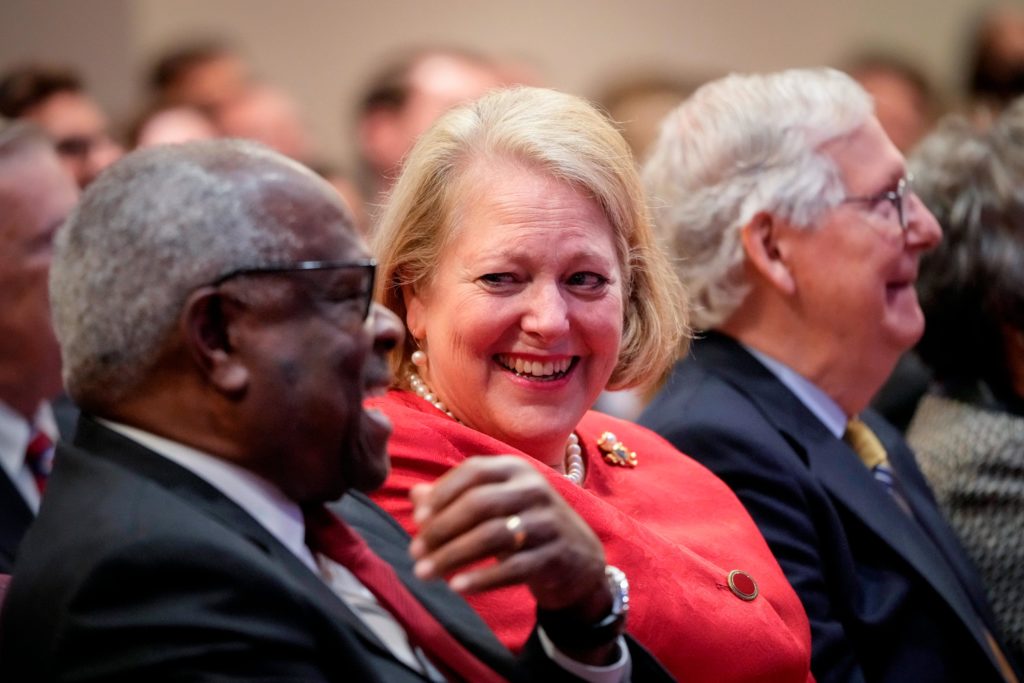The bullshit-originalist case against affirmative action

Affirmative action has always been an area of law where Clarence Thomas has refused to even pretend to engaging in “originalist” jurisprudence, for the obvious reason that any “originalist” argument that the 14th Amendment prevented race-conscious efforts to remedy racial inequities is farcical. In SFFA v. Harvard, Thomas does refer to to attempts to gin up an “originalist” case against affirmative action, but as Adam Serwer observes, it would have been better if he had just continued to ignore the issue entirely. His argument is literally that the Freedman’s Bureau was “race-neutral” because while almost all freedmen were Black not all Black people where freedman. Seriously:
In order to argue that the Framers of the Fourteenth Amendment did not intend to authorize racially specific efforts to alleviate inequality, Thomas finds himself forced to explain the existence of the Freedmen’s Bureau, which was reauthorized in 1866 by the same Congress that approved the Fourteenth Amendment. To square this circle, Thomas insists that the term freedmen was a “formally race-neutral category” and a “decidedly underinclusive proxy for race.”
If “freedmen” were a “formally race-neutral category,” then the Fourteenth Amendment does not authorize race-conscious efforts to remedy racial discrimination, and affirmative action cannot be constitutional. As an originalist, Thomas is supposed to interpret the Fourteenth Amendment as it was understood at the time it was written. He is attempting to reconcile his philosophy of judicial interpretation with what the history actually says; the other originalist justices do not really try, perhaps aware of the awkwardness of doing so. The problem, though, is that Thomas’s interpretation is obviously incorrect. His efforts at reconciliation ultimately illustrate the extent to which “originalism” is merely a process of exploiting history to justify conservative policy preferences, and not a neutral philosophical framework.
“Freedmen” cannot be a “formally race-neutral category,” because American slavery was not a formally race-neutral institution. Moreover, an extensive historical record illuminates the intentions of the lawmakers who passed the Freedmen’s Bureau Acts. They certainly did not see the term freedmen as racially neutral, and they intended the bureau to protect the rights of Black people in the South, whether formerly enslaved or not. We know this because they said so; the insistence to the contrary is the result of conservatives projecting their version of “color blindness” backwards through time.
“I don’t think Justice Thomas is correct—freedman was widely used as a synonym for Black,” Eric Foner, the Pulitzer Prize–winning author of Reconstruction, a historian cited in Thomas’s concurrence, told me in an email. “Ninety percent of Blacks were slaves in 1860, and everyone knew whom the Freedman’s Bureau Act was meant to assist.”
Republican lawmakers in the 1860s did not believe that targeting aid to Black people contradicted, as Thomas writes, a “commitment to equal rights for all citizens, regardless of the color of their skin.” They saw such racially conscious efforts as fulfilling that commitment. These lawmakers did not share modern liberal sensitivities either—contemporary perspectives on interracial marriage and integrated schools would have been foreign to nearly all of them, except perhaps Thaddeus Stevens and Charles Sumner. Figuring out what the words they wrote meant at the time they wrote them requires understanding the very different dynamics of their era.
The argument is illogical on its own terms (even if the term “freedman” did apply strictly to freed slaves, it would be as “race-neutral” as grandfather voting clauses — not that I should be giving them any ideas) while also being flatly historically wrong. FedSoc law office history [sic] at its finest!
For our next episode, how Republicans decided in the 80s to turn John Marshall Harlan into the country’s preeminent civil rights hero, with anti-civil rights consequences.


